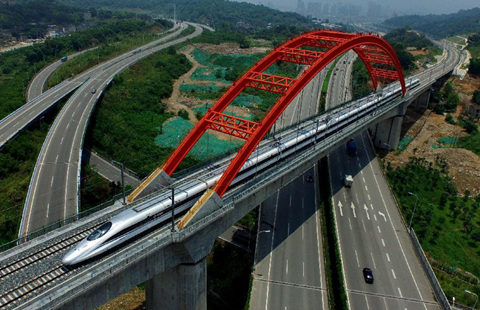Dark days for coal industry as glut worsens
By Du Juan (China Daily) Updated: 2015-06-05 07:45Nationwide coal inventories have stayed above 300 million tons for 39 months in a row, evidence of weak downstream demand from power plants and steel companies.
Lu Yaohua, the association's vice-chairman, said he isn't hopeful of a recovery in the industry anytime soon, and expects excessive supply to continue at least until the end of the year.
China's coal production capacity currently stands at around 4 billion tons, but there is also 1.1 billion tons of new capacity being built. Add another 300 million tons of imported coal annually, and China has excess capacity of 1.5 billion tons, according to industrial data.
Zeng Hao, a coal analyst with Fenwei Energy Co, an industrial consultancy based in Shanxi province, which is China's biggest coal-producing area, offers a scenario which illustrates the size of the problem.
"China could meet the world's entire coal demand if needed, if production ceased elsewhere," he said. "The current price war among coal producers also means industry consolidation is the only, inevitable solution."
Officials at Shenhua Group, China's biggest producer, last month announced they would cut production by at least 10 percent this year compared to last, which translates into an output reduction of around 50 million tons.
It is also taking other efficiency measures, and reducing wages.
Shenhua announced on May 22 it will cut overall salaries by 10 percent this year, calling that the best option to ensure miners' incomes.
But according to a leaked company document, one of its subsidiaries in the Ningxia Hui autonomous region has already slashed management salaries by 40 percent, and those in the rest of the workforce by 30 percent.
Some leading coal companies have decided the best way to survive is to diversify into other sectors including new energy, Internet technology and even tourism, as demand and prices remain low.
According to a report released by the statistics bureau of Shanxi province last month, around 215 companies classified as in the resources sector had diverted a total of 32 billion yuan from coal production into the tourism sector by the end of 2014, including entertainment developments, high-star hotels and vocational villages.
"Many businessmen who have been in the coal industry for decades have decided to move into other sectors because the industry offers such a bleak future," Zeng Hao said.
"The government has carried out a series of policies including tax reductions, and introduced import restrictions and output controls, but the effects have been limited.
- VAT net to be widened to realty, finance and consumer services
- Chinese firm to help build UK tidal power plant
- Dark days for coal industry as glut worsens
- Regulators target 'abuse' of IPR
- Yuan to be freely convertible soon in Shanghai FTZ
- Xiaomi moves further up the wearable ranks
- Top 10 largest global public Internet companies
- Auto spare parts market in Mena booms, attracts Chinese investment

















